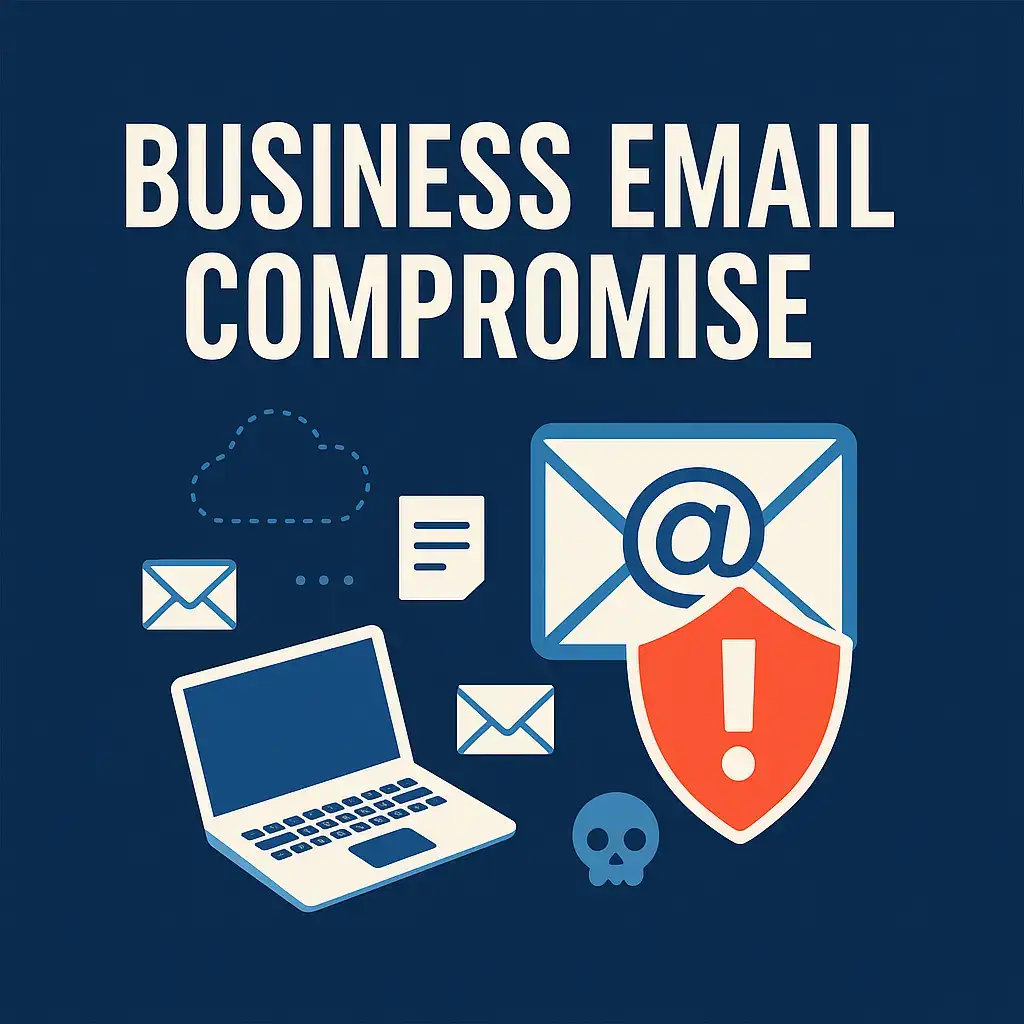Think You’ve Been Spoofed? A Small Business Guide to Business Email Compromise
You’re reading this because something feels off. Maybe a client received a strange invoice you didn’t send. Maybe your inbox shows replies to emails you never wrote. Or maybe your bookkeeper just wired thousands to an unfamiliar account.
If that sounds familiar, you might be dealing with a Business Email Compromise (BEC), and it’s one of the most financially damaging cyberattacks facing small businesses today.
What Is Business Email Compromise?
Business Email Compromise is a type of cyberattack where criminals impersonate or take over a legitimate email account, often an owner, executive, or financial controller. The goal is usually to trick employees, clients, or vendors into transferring money or sensitive information.
Unlike spam or ransomware, BEC attacks are often quiet, strategic, and convincing. They don’t rely on mass phishing emails. They rely on trust. That’s what makes them so dangerous: even technically savvy employees can fall for them when the message appears to come from the CEO or a trusted partner.
Common Signs You’ve Been Targeted
- Spoofed email addresses that look nearly identical to your real domain (e.g., helixdesk.co instead of helixdesk.com)
- Unauthorized forwarding rules that silently copy all emails to an outside account
- Invoices or wire transfer requests sent to clients that you never authorized
- Sudden password resets or alerts about suspicious sign-ins from new devices or locations
- Vendors or employees receiving emails that seem to come from your leadership team but didn’t
- Replies to emails you don’t remember sending, often as part of an existing thread
How Do BEC Attacks Happen?
Most BEC events begin with compromised credentials. These are often acquired through phishing emails, weak passwords, or breaches of other services where you reused a login. Once inside, attackers quietly monitor your communications, learn your writing style, and wait for the perfect moment to strike.
Some attackers even set up inbox rules to hide or delete replies from recipients, making it harder for you to notice a breach until it’s too late. These rules can auto-forward replies to their own inboxes or move messages to obscure folders.
Steps to Take Immediately
If you suspect you’ve been compromised, act fast:
- Change your password immediately and enable multi-factor authentication (MFA)
- Check inbox and forwarding rules for any unknown filters or auto-forwards
- Alert your clients and vendors about potential fraud, especially if money may be in transit
- Scan your systems for other signs of breach or unauthorized access
- Call your bank if funds were transferred; they may be able to freeze or reverse it
- Contact HelixDesk Emergency Support for containment and investigation
Time is everything. The longer an attacker maintains access, the more damage they can do, and the more trust you lose with clients and partners.
How to Prevent Business Email Compromise
Prevention isn’t just technical, it’s cultural. Here’s what works:
- Enable MFA on all email accounts, especially executives and finance teams
- Train your staff to recognize phishing attempts and email impersonation
- Use email authentication protocols like SPF, DKIM, and DMARC to block spoofed senders
- Set financial verification procedures for any wire transfers, no matter how routine they seem
- Work with an MSP to proactively monitor your cloud and email environments
Also consider investing in email security tools that can detect anomalies such as logins from unfamiliar IP addresses or changes in email behavior patterns. These tools work best when combined with user training and real-time monitoring by your IT provider.
Don’t Wait Until You’re a Headline
Small businesses are the most common BEC targets because they often skip cybersecurity basics. A single mistake can cost tens of thousands, damage your reputation, and erode client trust. Unlike large corporations, SMBs may not recover from such an incident.
Learn more about our Cybersecurity and Compliance services and how HelixDesk protects Arizona businesses from modern threats like BEC, ransomware, and insider risks.
If you’ve been spoofed, breached, or are unsure where your vulnerabilities lie, let’s talk. HelixDesk is here to help.

